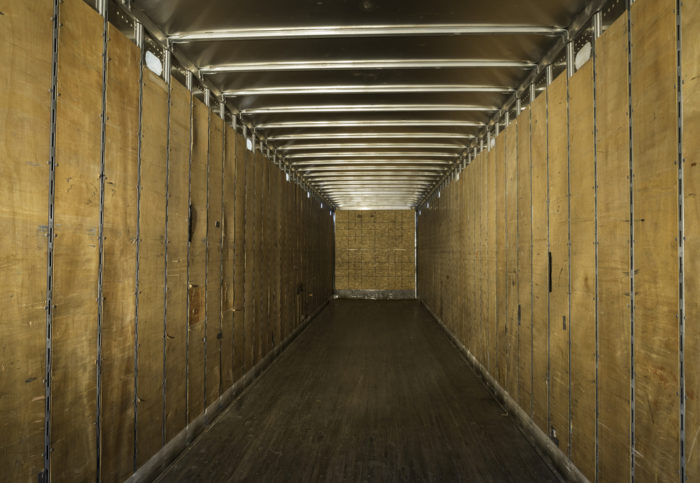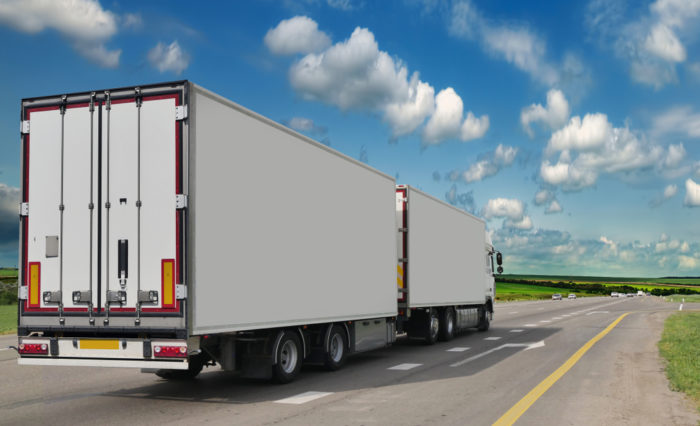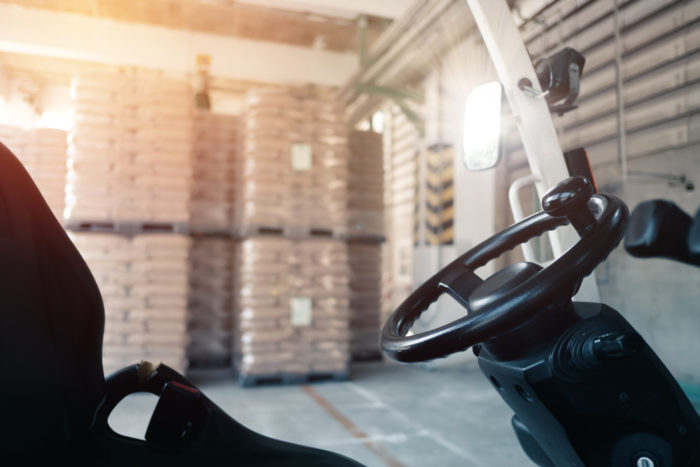The implementation of sustainable product transportation is one of the thorniest problems facing us today. According to the Environmental Protection Agency (EPA), the U.S. logistics system moved more than 56 tons of freight per person in 2015. The numbers have only risen since this estimate was calculated, and the vast majority of this freight is shipped using fossil fuel-burning trains, planes, ships, and automobiles. The number of products moved by electric vehicles is insignificant against the overall scale of the logistics network. While Daimler recently announced that it would begin delivery of electric semi-trucks and Yara International may launch an electric container vessel in 2020, the widespread deployment of practical electric freight vehicles in all roles may still be years away.
This poses a serious challenge to proactive companies trying to build a more environmentally friendly business model, as truly sustainable product transportation is out of reach until these alternative freight vehicles are available for widespread deployment. In turn, this is a challenge for society as a whole, as we depend on the supply chain to deliver food, clothing, medical supplies, and the building materials that make civilization possible. In the absence of emissions-free freight vehicles, sustainable product transportation requires that we put efforts into reducing weight, preventing waste, and keeping emissions as low as possible instead.
Sustainable Product Transportation Starts With Eliminating Empty Miles
 Shipping freight means shipping products wherever they are needed. The inevitable side effect of this is that transportation vehicles can and do deliver products to locations where there are no products or materials available to carry back. No one in logistics, from coordinators down to drivers, likes empty miles, also referred to as deadhead trucking. It offers absolutely no return on costs such as wear and tear on the vehicle, wages for the driver, and fuel expenses. Today, concerns about emissions and climate change have added a new impetus to avoid the empty miles that are already a prohibitive waste of time, money, and energy. There are several strategies that companies use to reduce empty legs:
Shipping freight means shipping products wherever they are needed. The inevitable side effect of this is that transportation vehicles can and do deliver products to locations where there are no products or materials available to carry back. No one in logistics, from coordinators down to drivers, likes empty miles, also referred to as deadhead trucking. It offers absolutely no return on costs such as wear and tear on the vehicle, wages for the driver, and fuel expenses. Today, concerns about emissions and climate change have added a new impetus to avoid the empty miles that are already a prohibitive waste of time, money, and energy. There are several strategies that companies use to reduce empty legs:
- Track and Trace: This term refers to the ability to track a load down anywhere in the supply chain and to view its entire history. One of the key reasons that empty miles occur is the difficulty of keeping track of multiple loads going to different locations. Dead legs may occur not because there isn’t a load that needs moving, but simply because no one is aware that it is there. Load unit level RFID tracking solutions enhance the visibility of individual loads and help logistics managers avoid empty miles.
- Continuous Move Planning: Greater transparency in individual supply chains and across different supply chains allows logistics managers to plan continuous product movement. Essentially, continuous move planning involves daisy-chaining different shipments together to ensure that trucks are never traveling empty.
- Co-loading: Another solution is to use the same vehicle to ship partial loads from multiple companies. This allows the carrier to maximize the use of their vehicle and their fuel, and companies do not have to pay full price to ship a partial load of products.
- Private Fleet: The majority of businesses depend on independent carriers that specialize in transportation. This puts corporations at an additional distance from product transportation and does away with any control they might have over the transportation of their products. In order to reduce empty miles and contain rising transportation costs, some corporations have brought their transportation in-house. This allows them direct control over product transportation and the ability to arrange co-loading, continuous move planning, and track and trace initiatives.
Reducing dead legs is a major step toward sustainable product transportation.
In order to avoid empty miles, most companies must use a combination of these methods. Even then it may only be possible to minimize empty legs rather than eliminate them completely. Reducing dead legs is important for supply chain efficiency and is a major step toward sustainable product transportation. However, it is only part of what can currently be done to make the logistics network more sustainable. It is also important to ensure that shipments themselves are as efficient as possible.
Maximizing Loads for More Sustainable Transportation
 Improving supply chain efficiency–and, by extension, sustainable product transportation–requires two seemingly contradictory actions. The first is that businesses maximize the cost-effectiveness of each transportation leg by loading as much product as possible onto the transportation vehicle. The second action is to lighten the load as much as possible in order to burn less fuel and increase the truck’s average fuel mileage. This can help reduce the emission of greenhouse gasses during the trip. At first glance, these are seemingly irreconcilable strategies. However, there is a way to pursue both at the same time: reduce the weight of product packaging and shipping pallets in order to maximize the proportion of the weight of a load that is sellable products.
Improving supply chain efficiency–and, by extension, sustainable product transportation–requires two seemingly contradictory actions. The first is that businesses maximize the cost-effectiveness of each transportation leg by loading as much product as possible onto the transportation vehicle. The second action is to lighten the load as much as possible in order to burn less fuel and increase the truck’s average fuel mileage. This can help reduce the emission of greenhouse gasses during the trip. At first glance, these are seemingly irreconcilable strategies. However, there is a way to pursue both at the same time: reduce the weight of product packaging and shipping pallets in order to maximize the proportion of the weight of a load that is sellable products.
Creating packaging that is less wasteful and easier to recycle is a necessary part of developing a supply chain for the circular economy.
Packaging redesigns are happening anyway. Creating packaging that is less wasteful and easier to recycle is a necessary part of developing a supply chain for the circular economy. A determined effort to reduce the weight of packaging should be part of any redesign. Of course, new packaging designs take time to create, produce, and deploy. In the meantime, there are easy ways to lighten the overall weight of product loads by switching to lighter weight shipping pallets.
How Lighter Shipping Platforms Make Transportation More Sustainable
Plastic pallets are widely available, and, at under 50 pounds, weigh far less than the 70 to 80 pounds that wood block pallets weigh. The advantages of their lighter weight are twofold. The first is that on loads that ship by cubing out—filling the full volume of the truck—lighter individual pallet loads result in a significantly lighter total load weight. The weight savings that plastic pallets provide can add up to significant savings on fuel costs, transport charges and emissions, especially over the course of quarterly or yearly operations. On loads that weight out by reaching the maximum weight capacity of the truck, the weight saved by using plastic pallets allows more product to be shipped per load. While these typically heavy loads don’t offer opportunities for savings on fuel, the possibility of transporting more product per leg means that fewer trips may be needed to fulfill an order.
Plastic pallet pooling is a circular business model.
Renting plastic pallets through a pooling provider instead of purchasing them outright offers the opportunity to enhance fuel saving with co-loading and continuous move planning. Plastic pallets from a pool are shared among the clients of that pool, making it possible for the pallets to move through supply chains in a way that reduces or eliminates empty miles. Plastic pallet pooling is a circular business model, and pooling services use continuous move planning to ensure pallets are transported in the most cost- and energy-efficient way possible.
Since plastic pallets are more durable and easier to clean than wood pallets, they have another sustainability advantage as well. Plastic pallets rarely break or require repairs, which means that they need to make fewer trips back to pooling depots for repair or cleaning. Truly sustainable product transportation matters for our economy and planet, and taking advantage of the services of a plastic pallet pooling program is one of the easiest and quickest ways to take a step toward a more sustainable future.
iGPS is the largest nationwide pallet rental program that specializes in plastic pallets. Our plastic pallets offer substantial weight savings that can help make your product transportation more sustainable. To make the switch, give our team a call at 1-800-884-0225, email a specialist at switch@igps.net, or visit our contact page.



